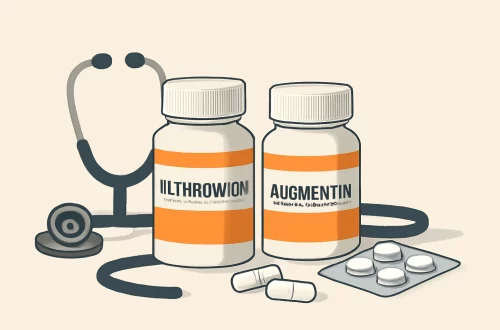
The Best Protein Sources for Your Dog’s Health and Wellbeing
When it comes to our furry friends, providing them with the right nutrition is paramount for their overall health and happiness. Dogs, being omnivorous by nature, thrive on a balanced diet that includes a variety of nutrients, with protein being one of the most essential. Protein plays a critical role in maintaining muscle health, supporting immune function, and promoting overall vitality. However, not all protein sources are created equal, and understanding the best options available can significantly impact your dog’s well-being.
As pet owners, we often find ourselves overwhelmed by the plethora of dog food options on the market, each claiming to offer the best nutrition. It’s crucial to look beyond marketing claims and delve into the actual nutritional value of the ingredients. Dogs require a diet rich in high-quality protein, which aids in tissue repair, energy production, and the maintenance of healthy skin and coat. The right protein sources can also help in keeping your dog’s weight in check, as some proteins are leaner than others.
In this exploration of protein sources, we’ll highlight some of the best options you can incorporate into your dog’s diet. By making informed choices, you can ensure that your canine companion leads a healthy and happy life.
High-Quality Animal Proteins
When considering protein sources for your dog, high-quality animal proteins should be at the forefront of your choices. These proteins are not only complete but also contain essential amino acids that are vital for your dog’s health. Animal proteins provide a robust source of energy and are generally more digestible than plant-based proteins.
Some of the best animal protein sources include chicken, beef, lamb, and fish. Chicken is often favored for its lean qualities and high protein content, making it an excellent choice for active dogs. Beef is another popular option that provides a rich source of iron and other essential nutrients. For dogs that may have sensitivities to certain meats, lamb is a great alternative, as it is less common in commercial dog foods and can be gentler on the stomach.
Fish, particularly varieties like salmon and sardines, are packed with omega-3 fatty acids, which contribute not only to muscle health but also to a shiny coat and healthy skin. Additionally, the inclusion of fish in your dog’s diet can aid in reducing inflammation and promoting brain health.
When selecting animal proteins, it’s essential to choose high-quality sources without fillers or artificial additives. Opting for whole meats rather than meat by-products ensures that your dog receives the maximum nutritional benefit. Always consult your veterinarian to determine the best protein options for your dog’s specific needs and dietary restrictions.
Plant-Based Protein Sources
While animal proteins are pivotal, incorporating plant-based protein sources can also enhance your dog’s diet. These sources can provide additional nutrients and fibers that contribute to overall health. Beans, lentils, and quinoa are excellent examples of plant-based proteins that can be included in your dog’s meals.
Beans, such as black beans or kidney beans, are rich in protein and fiber. They help in maintaining digestive health and can be a great supplement for dogs that may be overweight, as they provide a feeling of fullness without excessive calories. Lentils are another fantastic option, offering a high protein content along with important vitamins and minerals, such as iron and folate.
Quinoa, though technically a seed, is often referred to as a grain and is an excellent source of protein that is gluten-free. It contains all nine essential amino acids, making it a complete source of protein for dogs. Feeding your dog quinoa can be particularly beneficial for those with grain sensitivities, as it serves as a great alternative to traditional grains like wheat or corn.
When incorporating plant-based proteins, ensure they are properly cooked and prepared to facilitate digestion. While they can provide valuable nutrients, it’s essential to maintain a balanced diet that includes adequate animal protein, as dogs are primarily meat-eaters.
Eggs: A Nutritional Powerhouse
Eggs are often referred to as a superfood for dogs, and for good reason. They are a fantastic source of high-quality protein and contain a myriad of essential vitamins and minerals that promote overall health. Eggs are packed with amino acids, making them one of the most complete protein sources available.
The digestibility of eggs is another significant advantage. They are easily absorbed by your dog’s body, ensuring that they receive the maximum nutritional benefit. Additionally, eggs contain healthy fats that can contribute to a shiny coat and healthy skin.
Serving eggs to your dog can be done in several ways. You can scramble them, boil them, or even serve them raw, depending on your dog’s preferences and dietary requirements. However, it’s crucial to ensure that any eggs provided are from a reputable source and are fresh to avoid any potential health risks.
While eggs are a fantastic addition to your dog’s diet, moderation is key. Too many eggs can lead to an imbalance in nutritional intake, so it’s best to use them as a supplement rather than a staple in your dog’s diet. Always consult your veterinarian if you’re unsure about the appropriate amount of eggs for your dog.
Incorporating Protein into Your Dog’s Diet
Incorporating the right protein sources into your dog’s diet can be both simple and rewarding. It’s essential to consider your dog’s specific needs, including their age, size, and activity level, when formulating their diet. A well-rounded approach that includes a mix of high-quality animal proteins, plant-based sources, and occasional treats like eggs can lead to a healthier and happier pet.
Adapting your dog’s diet may take time, and it’s crucial to introduce new foods gradually to avoid any digestive upset. Monitoring your dog’s response to new protein sources will help you determine which options work best for them.
Additionally, it’s vital to maintain a balanced diet overall. While protein is an essential component, your dog also needs carbohydrates, fats, vitamins, and minerals to thrive. Consulting with a veterinarian or a pet nutritionist can provide valuable insights into creating a well-rounded meal plan tailored to your dog’s unique needs.
Finally, remember that hydration is just as important as nutrition. Always ensure your dog has access to fresh, clean water to support their overall health.
This article is not intended as medical advice. For any health-related concerns regarding your pet, please consult a qualified veterinarian.




